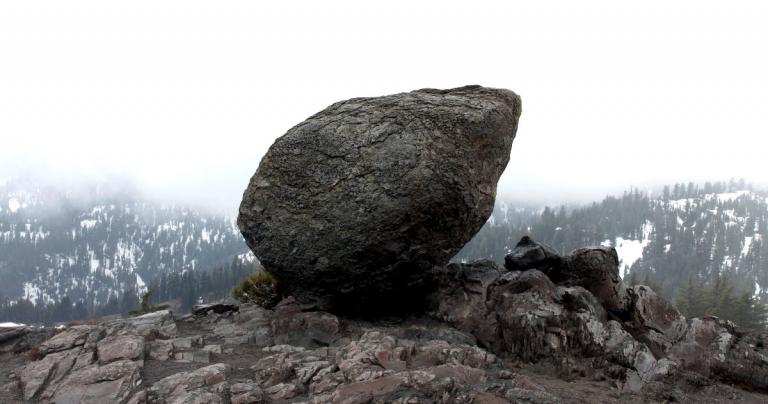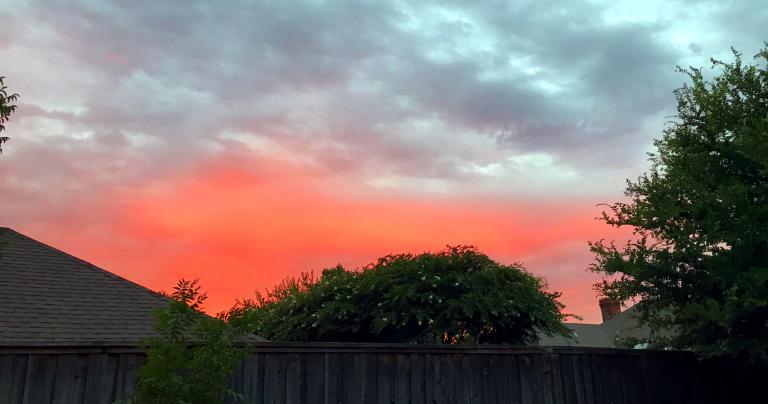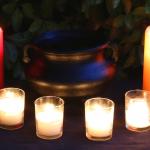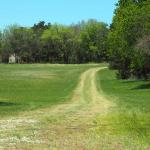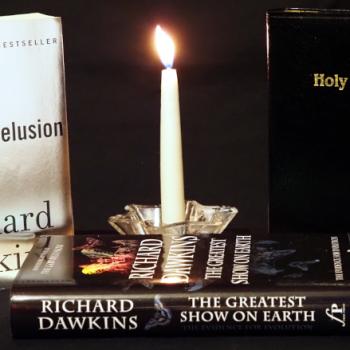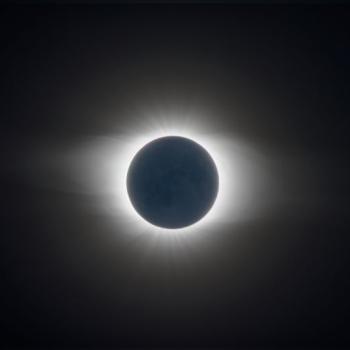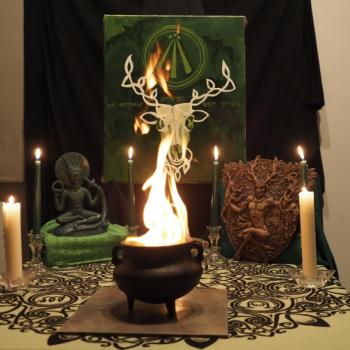Last weekend an atheist left a very good comment where he took issue with my use of the word “to know.” The conversation went like this.
John: “I’ve always known the Divine has a feminine side”
MNb: “Unfortunately I only can guess what you mean with the word ‘to know’ here. But I’m pretty sure it’s not the same as what I mean with it.”
John: “I use ‘to know’ somewhat hesitantly here, likely for the same reasons behind your comment. There is a qualitative difference between ‘to believe intensely’ and ‘to be able to prove objectively.’ But I have no other word for the kind of deep, intuitive, experiential understanding that something is true even though I can’t prove it objectively.
Then the next day, I led the Sunday Service at Denton UU where I spoke on Becoming Invincible: Overcoming Fear Through Reason and Experience. Here’s a key excerpt:
Becoming invincible begins with reason … but reason alone is not enough … This knowledge does not come from reading books or even from diligent study. It comes from years and years of dedicated and consistent spiritual practice: meditation, prayer, and devotion.
Or, it comes from a one-time first-hand ecstatic religious experience so powerful it rewires your consciousness, changes your foundational assumptions about what is and isn’t possible, and basically turns your life upside down.
I didn’t go into details. A UU Sunday Service is not the place to discuss entheogens and the Headless Rite – particularly not in August when lots of people are church shopping.
Is it a contradiction – or even an outright error – to say we “know” in a religious context? I don’t think so or I wouldn’t use it. But it is a hard question that likely rises to the level of a mystery.
Believing is not the same as knowing
I grew up in a fundamentalist church where I constantly heard the preacher saying “I know this is true!” and “you can know this is true!” Meanwhile, I was biting my tongue and screaming inside my head “no, you believe it’s true!” Sacred texts and church doctrines may be deeply meaningful to followers of that religion, but that doesn’t make them factually true.
A quote of dubious origins often attributed to Mark Twain says “It ain’t what you don’t know that gets you into trouble. It’s what you know for sure that just ain’t so.” In an era of fake news and of the dismissal of inconvenient facts as fake, it’s important to know the difference between facts, theories, opinions, and lies.
We can never know the true nature of the Gods in the same way we know truth of the Pythagorean Theorem. But that doesn’t mean we can know nothing about Them.
Hold loosely but practice deeply
There is no certainty in matters of religion. If you must have religious certainty, your only honest option is to become an agnostic. But many of us – myself included – find agnosticism unfulfilling.
The solution is to hold our beliefs loosely. Never assume we know it all, never forget that we might be wrong, and most importantly, always remain open to new evidence and new lines of thinking. Our polarized political debates have shown that when most people are confronted with clear evidence that their beliefs are wrong, they deny the evidence and dig in defensively. Their fear of change (and their fear of admitting that they were wrong) is greater than their desire to actually be right. We must do better – hold loosely.
But while we hold a belief, we act as though it is absolutely true. Do you believe the Gods are real, distinct, individual beings? Then act as though They are. Speak to Them individually, pour offerings to Them individually, and think of Them as individuals, not as “aspects” or “faces” or some other metaphor that assumes or implies that They’re really all part of one God.
Do you believe in magic? Then stop trying to come up with a “rational” explanation for it, accept that it’s real, and start practicing magic as deeply as you can.
If you later find enough evidence to refute your beliefs, then change them. But while you hold them, act as though they’re true. You may be surprised how deep that approach can take you.
Mundane knowledge is still required
Like the problematic Mark Twain quote, the problem with those Baptist preachers was that much of what they “knew” was demonstrably false. The Earth is a lot more than 6000 years old. Noah’s flood is the cultural memory of localized devastations at the end of the last ice age, not a worldwide event.
Pagans aren’t exempt from this. It’s only been in the past 30 years or so that the majority of Pagans have understood that nine million witches weren’t burned in the “burning times” (it was under 100,000, and the vast majority of them weren’t witches). I still occasionally run into people who claim to be a “hereditary Druid” with roots in antiquity. We have to know our own history.
If you want to read omens and auguries in Nature, you have to know what’s normal animal and plant behavior. Yes, sometimes a crow is the Morrigan, but most times it’s a crow doing its own things for its own reasons.
Ground yourself in ordinary science and history and don’t pretend you “know” something that isn’t really true.
Foundational assumptions control your conclusions…
When materialists scream “you have no evidence!” what they mean is “you have no evidence that aligns with my assumptions that nothing exists except for matter and the interactions of matter.” Evidence that doesn’t fit those assumptions is ignored or rationalized away. If you assume that the Gods are abstractions and metaphors then Odin could appear bodily before you and all you’d do is wonder why that odd old man doesn’t have a glass eye instead of a patch.
Our experiences are undeniably real. Our foundational assumptions control which interpretations we will consider and which ones we will reject out of hand.
Holding loosely but practicing deeply allows us to “bracket” our foundational assumptions and suspend them temporarily. We don’t have to suddenly change our thinking about the nature of reality, we just have to be open to the possibility that reality may be bigger than we’ve always been told.
And then go experiment.
…But results add up
James Bond creator Ian Fleming had one of his characters say “Once is happenstance. Twice is coincidence. The third time it’s enemy action.” Fleming served in World War II – he knew what he was talking about. If you jump at every noise you’ll never get anything done. But eventually, it becomes clear that something’s there and you’d better deal with it.
Do you have a need where magic would be helpful? Something you just can’t get through ordinary effort? Or something that’s so important you want all the help you can get? Then work magic. If you don’t know any other method, use sigil magic – it’s very simple and it’s very effective. Don’t think magic is real? Doesn’t matter – magic works on action, not on faith.
The first time your spell brings results, you’re likely to dismiss it as a coincidence. The second time you’ll dismiss it as confirmation bias. Throw in a time or two when it doesn’t work (likely because you chose the wrong target – more in that in the coming days) and your materialistic assumptions are still firmly in place.
But after the ninth or tenth or fiftieth time, those assumptions start to shift. The results add up. Now it’s easier to assume that magic is real than to assume it’s not.
After years of devotion, including multiple ecstatic experiences, it’s easier to assume the Gods and spirits and ancestors are real than to assume they’re not. If you follow your own experiences, the way you see the world will change.
Knowing through intuition
I told the commenter “I’ve always known the Divine has a feminine side.” This wasn’t an experimentally verified result. It wasn’t a logical inference. It was intuition – something I knew was true in the depth of my soul.
Sometimes intuition is your subconscious spotting cause and effect at a level your conscious mind ignores. Sometimes it’s the whispers of Gods and spirits. Sometimes it’s something we can’t explain even to ourselves, but there it is.
We have to be careful relying on intuition. Sometimes it tells us what we wish was true. Sometimes it tells us what we fear might be true. Many times it simply repeats what we’ve always been told is true.
But when we know ourselves, and when we practice good discernment, our intuition points us toward truths we would otherwise never see.
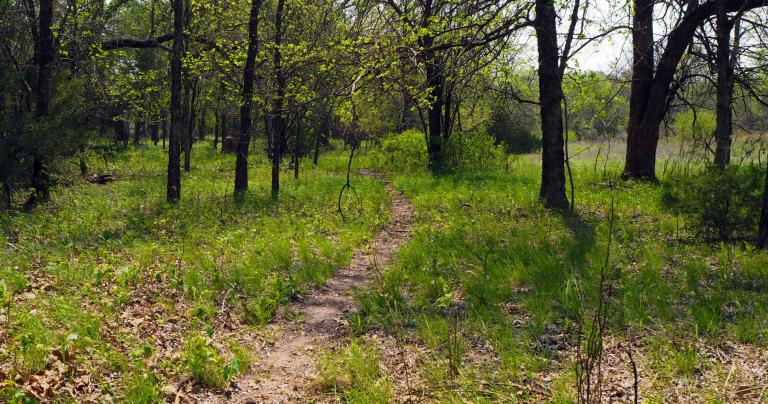
But do we really know?
Here’s what I know, by any standard of knowing there is:
When I work magic, I get favorable results far more often than I don’t.
The more I honor the Gods the more experiences I have of Them, and the deeper those experiences get.
My life is more meaningful, more connected, less fearful, and happier – though to be honest, not any easier – than before I started this Pagan journey.
That’s enough evidence to convince me that I’m doing something right. So I’m going to keep doing it.
What does it mean to know? Is it to be certain, in the way we can be certain the Pythagorean Theorem is true? Is it to be able to win arguments with atheists and fundamentalists? If that’s the standard then we can know nothing in the realm of religion. But experience shows that certainty is not necessary.
And at this point, I’m convinced it’s all true.
No, I can’t convert atheists or fundamentalists. I don’t need to – that’s not part of my religion.
This isn’t “my truth” – this is “truth as I understand it.” Those aren’t the same things, and that’s important. When people say truth is relative and this is “their” truth, 99% of the time they’re trying to deflect criticism – they’re not being open to new evidence and new experiences. “Truth as I understand it” says “this is where I am right now, but that may change.”
I know magic works. I know the Gods are real. I’m open to someone proving me wrong, but I don’t see how that can happen.
And that’s a very good place to be.


